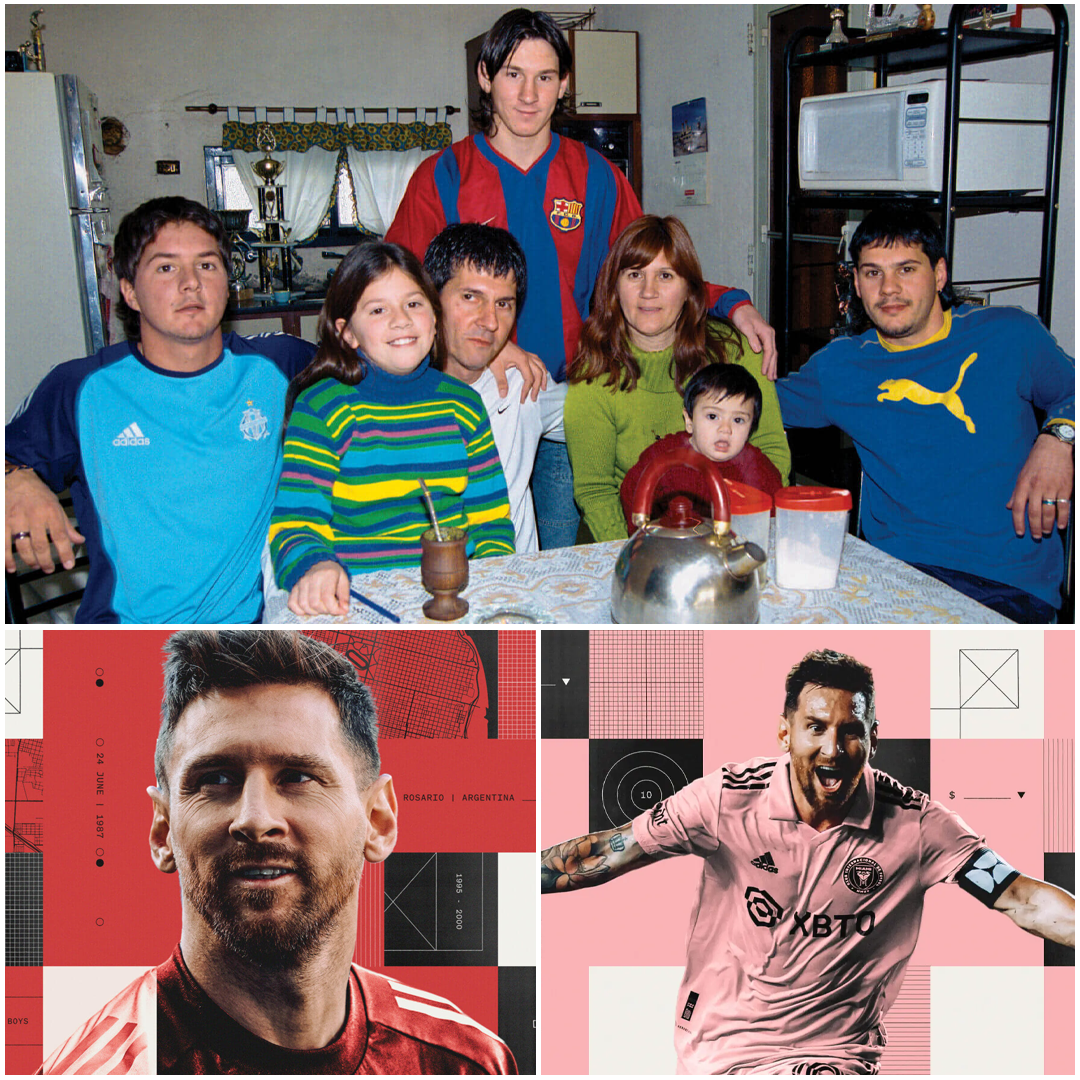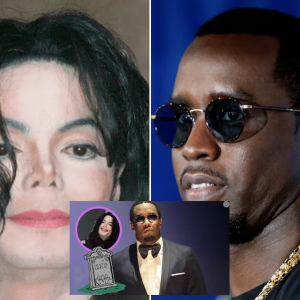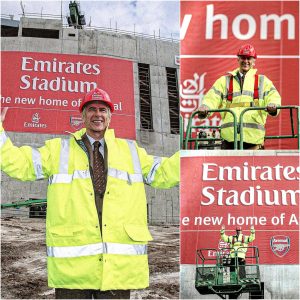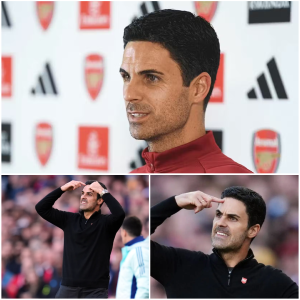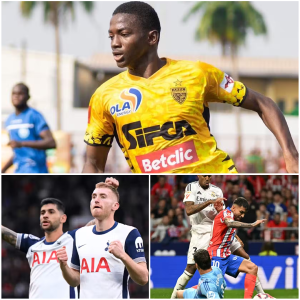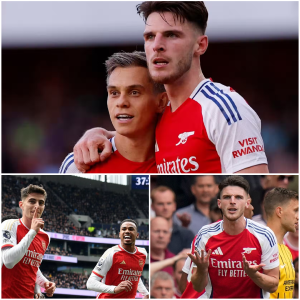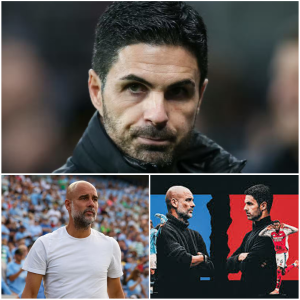Lionel Messi has wasted little time in making an impact at Inter Miami, the third club he has played for in his illustrious career.
The deal taking him to Miami, after his Paris Saint-Germain contract expired, was only finalized on July 15. The World Cup winner has already added the Leagues Cup to his trophy cabinet, scoring 10 goals in seven games to fire his new club to their first piece of silverware.
For Messi, it is major trophy number 44.
Despite turning 36 in June, he is as influential as ever. Here is the complete story of Lionel Andres Messi, widely regarded as one of the greatest footballers in the history of the sport, as told by 30 of our award-winning team of reporters, from Adam Crafton to Oliver Kay, from Michael Cox to John Muller, as well as many, many more. It will be continuously updated to reflect Messi’s ongoing Inter Miami career.
The early life of Lionel Messi

It started with a videotape. Horacio Gaggioli, an agent in Argentina, was sent footage of a 12-year-old Lionel Messi playing for the oxymoronic Newell’s Old Boys youth teams. A year later and Messi arrived in Barcelona with Gaggioli and his father for a trial that would change the course of history for both player and club.
Messi played only for the youth sides of Newell’s Old Boys and yet he is a bona fide club legend by virtue of what he would go on to achieve. In Rosario, as early as the late 1990s, he was already cutting in from the right flank and bending the ball into the far corner with his left foot. The skills were already astonishing but, naturally, there were doubts as a result of the youngster’s diminutive frame.
This was around the time Messi was being seen by a pediatric endocrinologist (a glands and hormones specialist) because of having been diagnosed with a growth hormone deficiency at the age of 10. His was a middle-class family and the Messis lived in a modest two-story home located on the Calle Lavalleja in Rosario. Lionel’s father worked as a supervisor at a steel manufacturing plant while his mother worked at a shop that specialised in magnetic coils.
It was, in fact, Messi’s grandmother who encouraged him to join a club rather than simply play informally with other children in the neighbourhood. His trademark goal celebration of pointing both index fingers to the sky is a tribute to that late grandparent, a key formative influence whose importance has never been forgotten.
Messi was a shy and introverted child and, during one early match, he played with stones he found on the pitch while the game went on around him. Naturally, when the ball came to him, it was a very different story and the raw talent was there for all to see. This reserved nature, quite uncommon in elite athletes, might explain why the young Lionel ultimately decided to let his father, Jorge, become his agent. After an agonising wait during which the hierarchy debated the best course of action, Barcelona eventually agreed to sign the player and cover his treatments, the latter something Newell’s Old Boys could or would not do. History is written by the winners, however, so Messi is a hero at the Argentine club despite making his professional debut elsewhere.

Jorge’s (third from left, above) involvement in his son’s career is a fascinating aspect of the Messi story. His first organised involvement was helping as coach at the local Grandoli club, where little Leo played his first games. While the family was relatively comfortable, they did not have the $900 a month required for the hormone treatment. The Barcelona move was essential but it was not until December 2000 that Barca director Charly Rexach famously signed a contract written on a napkin that confirmed the Argentine’s move to La Masia. The romantic element of the tale belies the truth of the negotiations. In reality, neither father nor son were willing to return to Spain until they were sure they were going to be paid the 100 million pesetas per season they felt they were worth.
This kind of steeliness would be a recurring theme in Messi’s early days at the Camp Nou. After a year at Barcelona, a new general manager questioned why somewhere in the region of €120,000 a year was being paid to a youngster yet to play a competitive game. Jorge responded by making enquiries about a move to Real Madrid and ultimately the Messi men got their way before it was obvious quite what a talent the club had on their hands. Indeed, at that fledgling stage, the Messis were able to negotiate three new contracts within just 18 months. Within three years of making his Barcelona debut, Messi replaced no less a player than Ronaldinho as the highest earner on the club’s books.
When Messi signed for Barcelona in 2001, the whole family moved to the Catalan capital, but mother Cecilia and siblings Rodrigo, Matias and Maria-Sol soon moved back to Rosario and left father and son in a relatively small apartment close to the Camp Nou. Like sitcom room-mates, the pair largely ate takeout food and played video games but, more crucially, developed a remarkable bond rare even for kin.
When the Messi family left Argentina at the turn of the century, they neglected to tell even those closest to them about the move. In a sense, that insular nature and distrust of outsiders has remained with the player throughout his career. Those on the inside have repeatedly suggested Jorge is a difficult man to deal with but perhaps he is just a father who understood the extraordinary value of his son before the world caught up. When you’ve got an asset like Lionel, it tends to give you the upper hand in most negotiations around money.
Go Deeper:
Messi’s record-breaking Barcelona career

Two things come up time and again when any team-mate is asked about Messi’s early days at Barcelona; the young Argentine was extremely shy and prodigiously gifted. In the words of Victor Vazquez:
“From day one, it was crazy how good he was out on the pitch. Me and the other players in the academy — like Gerard Pique and Cesc Fabregas — were always talking about how incredible a player he was. We couldn’t believe how good he was and the whole dressing room agreed we had to do everything we could to help Leo adapt to living in Barcelona.”
On the pitch, there were no issues. Messi’s rise through the youth ranks was one of the fastest the club had ever seen. In his first full season, he scored 38 goals in 31 games while playing at under-16 level. Barcelona moved the 16-year-old to the under-18s for the 2003-04 season. His time in that side did not last long, however, as the teenager set a club record that has never been equalled: he played for five different Barcelona teams in one season.
The first-team manager, Frank Rijkaard, was impressed enough to call Messi up for a friendly against Porto (at that time managed by Jose Mourinho) in November 2003. His 15-minute cameo was ultimately remarkable enough to see the Argentine play for Barcelona’s B and C teams for the remainder of the season. He would never return to the academy or look back in any way.
In October 2004, aged 17 years, three months and 22 days, Messi made his competitive debut for Barcelona as a substitute against Espanyol. That was the first of nine appearances he made that season, the last of those featuring his first goal for the club in the very final minute of the season with a terrific lob.
Messi could not start playing the following season until September 2005 when a citizenship issue was finally resolved. The Argentine helped his side to their second successive league title with eight goals and five assists in 25 games. The only disappointment was a hamstring injury that ruled him out of the Champions League final victory over Arsenal despite the fact the player felt he was fit enough to start.
That 2006 European triumph signalled the end of an era at Barcelona and the next couple of years were difficult and culminated with the dismissal of Rijkaard in 2008 and the appointment of Pep Guardiola, a decision that altered the course of the club’s history. Ronaldinho was sold and Messi inherited the number 10 shirt as the central figure in arguably the greatest club side in the history of the game.

In the 2008-09 season, everything went right. The Argentine managed 38 goals and 19 assists in 51 games while helping Barcelona secure the Copa del Rey, La Liga and Champions League titles. It was a banner year for Messi in which he played his first game as a false nine and won the Ballon d’Or (the first of an astonishing seven).
The numbers tell their own story, with Messi and Guardiola combining with devastating effect. Thirty-eight goals seems an astonishing number for a player whose game was about far more than simply finding the back of the net and it’s even more staggering when one considers he would go on to score even more goals in each of the next 10 seasons. Messi and his manager ensured Barcelona picked up 14 trophies in four seasons before Guardiola suddenly stepped down in the summer of 2012.
With Guardiola gone, Barcelona managers came and went (three in successive years) with it becoming understood that the star man had more power than whoever was sat in the dugout. Indeed, Gerardo Martino actually said to Messi during his brief tenure: “I know that if you call the president and ask for my head, he would fire me the next day but, please, I don’t need you to prove it to me every day.”
To call Messi a club legend doesn’t even begin to do justice to his extraordinary feats. As a way of adding context, consider the fact that, in 2021, according to government data, Leo was the fifth most common name given to newborn children in Catalonia and the only name in the top six without a Catalan origin. Ultimately, Barcelona’s struggles on and off the field in recent years saw the relationship between the player and the club break down and, instead of a fairytale ending, the denouement was a tearful press conference in the summer of 2021.
One intriguing aspect of the Messi farewell is that his salary deferrals of 2020 and 2021, aimed at easing Barcelona’s financial troubles, mean he continues to be paid by the club and will be until 2025. Many of the Camp Nou faithful believed he might return after his time in Paris came to an end and the noises from the club suggested they believed it was a genuine possibility. Messi’s name was chanted at matches and there was real hope right up until the moment he decided to sign for Inter Miami.
At Barcelona, Messi became arguably the greatest player in history while plying his trade for arguably the greatest team in history, so perhaps he was wise to heed the old adage about never going back.
Go Deeper:
Why Messi struggled at Paris Saint-Germain

Messi’s time in Paris was every bit as complicated as the negotiations that led to his leaving the place he considered home for pastures new. Things started so brightly at PSG with Messi emerging from the airport in August 2021 in a shirt emblazoned with the words, ‘Ici C’est Paris’ (This Is Paris). If the footballing great was missing his friends in Barcelona then he certainly did a good job hiding it.
The player was paid a sign-on fee of €25million and agreed a two-year contract with a net salary of €25million per year. The deal included an option of a third year at the same rate but ultimately Messi was able to secure an even more lucrative deal in the United States.
Before arriving in France, the general perception of the Argentine great was that he was a man who let his football do the talking. Controversies off the field were rare and the headlines tended only to come as a result of his extraordinary ability. Perhaps it was inevitable but things were different in the French capital despite continued success on the field. Ultimately, the transfer was about more than just Messi’s ability with the ball at his feet and there was a nagging feeling that remained the case throughout his Parisian sojourn.
The deal made sense for all parties in the summer of 2021. Barcelona could no longer afford to keep their prize asset and PSG could offer outstanding money and Champions League football. The club had been sniffing around Messi for years and felt his commercial value was as significant as his talent on the field. As if to underline this point, the club’s Twitter account gained 800,000 followers in a single month after he signed.
When the history books are written, Messi’s first season at PSG will not go down as a vintage year. Eleven goals and 15 assists from 34 games in all competitions is certainly not a bad return but undoubtedly underwhelming when compared to the player’s own impeccably high standards. Let’s not forget the Argentine moved to Barcelona at the age of 13 and stayed there for two decades, so a period of acclimatisation was to be expected. He had to adapt to a new coach and team-mates as well as an entirely new environment for his family in a city with a very different way of life to Catalonia.

PSG won Ligue 1 in both of Messi’s seasons at the club but that should be considered the bare minimum. The club has gone from just two domestic titles to 11 in the decade since Qatar Sports Investments started their bankrolling project. The player was brought in to get the club over the line in the Champions League and, while the hierarchy might have been happy from a commercial standpoint, PSG were still eliminated in the round of 16 in both of Messi’s seasons at Parc des Princes.
In Messi’s second season at PSG, he notched up 41 goals and assists from 40 games in all competitions and helped his side to their second successive league title. The failure in Europe had far more to do with poor recruitment than the Argentine’s performances and yet he was not entirely blameless. What is undeniable is that his output was considerably reduced after the World Cup. This is understandable given Messi gave everything to ensure he finally won the ultimate prize and the competition took place, for the first time, in the middle of a domestic season. For the people who paid his wages, however, the Champions League was a more important target.
Messi’s relationship with the PSG fans never came close to the bond he had with the Barcelona supporters and there was a certain inevitability about it ending in tears. At the start of May, he was suspended for a fortnight and fined for an unauthorised trip to Saudi Arabia as part of a commercial agreement to promote tourism in the area. The player missed a training session and the general consensus amongst the PSG faithful was that the player who has won everything did not care enough about the shirt of the club, a feeling exacerbated by nine defeats in all competitions after the turn of the year.
The iconic great of the game came to be viewed as symptomatic of a strategy that prioritised star names over cohesion. He was one of a number of players viewed as looking to earn huge sums of money without truly caring about the project. Ultimately the club took a stand and, the day after he was suspended, it was reported that Messi would leave at the season’s close. He apologised for his conduct but the damage had been done. Still, in his penultimate game for PSG, the Argentine’s goal helped the club secure a second league title in a row as he became the player with the most goals in the history of Europe’s top five leagues – an astonishing 496.
It might not have been a Parisian fairytale but, by any measure, Messi still produced the goods in Ligue 1.
Go Deeper:
How Messi and Argentina won the 2022 World Cup in Qatar

In 2016, at the age of 29, Messi announced his retirement from international football. Despite being at his peak for Barcelona, he was reeling from a third international final defeat in as many years (his fourth in total). As if to underline quite how different things were for the player in an Argentina jersey, the country’s talisman missed his penalty in the shootout to decide the Copa America, uncharacteristically blazing the ball high and wide. Enough was enough.
A couple of months later and the decision had been reversed, much to the relief of just about every person in Argentina. There was a sense in some quarters that the player had just one more mountain to scale if he wanted to be considered on a par with his compatriot, Diego Maradona, and that was lifting the World Cup for his country. Messi had come close in 2014 and won the player of the tournament award for his efforts, but ultimately Argentina were defeated by Germany in a close final.
In 2022, at 35, Messi knew this was his last chance. He spoke of “the anxiety within my family and the country as a whole. Particularly my wife Antonela and son Thiago who watches all the national team games and knows all the possible match-ups, the opponents. ‘When are we going?’ he asks. ‘When’s the first game? When’s the second game?’ He’s nervous and the truth is that it puts terrible pressure on me.” This was exacerbated when, in Argentina’s opening game, Messi’s penalty gave his team an early lead but Saudi Arabia fought back in the second half to win 2-1. This was one of the biggest upsets in the competition’s history and some felt the Argentina captain would conclude his career without emulating Maradona.
It took Messi 64 minutes to break the deadlock against Mexico in the second group game and Pablo Aimar was so overwhelmed on the sidelines he broke into tears. The game ended 2-0 and another 2-0 victory, in the final group game against Poland, ensured Argentina topped their group despite that early setback. In the round of 16, against Australia, Argentina edged a tight match and Messi finally scored in the knockout stages of a World Cup. It also happened to be the 1,000th game of a storied career.

The quarter-final clash with the Netherlands would prove remarkably dramatic. Messi’s pass for Nahuel Molina’s opening goal somehow took out six Dutch players in one fell swoop and all seemed well until Wout Weghorst came off the bench and scored two late goals to make it 2-2 and take the game to extra time. Argentina won on penalties but it was a spectacularly ill-tempered affair, with Messi taunting both Weghorst and Louis van Gaal, the latter visibly angry after Messi provoked him by cupping his ears.
The semi-final was a relatively straightforward 3-0 win over Croatia (Messi opening the scoring with another penalty) before a final for the ages, perhaps the greatest there has ever been. For the first hour, however, it looked as though it would be a routine victory for Messi and co against the reigning champions France. They were 2-0 up at half-time and the French had contributed nothing of note in an attacking sense. It appeared as though Messi’s dream was finally about to come true with relative ease.
With 10 minutes remaining, France were awarded a penalty and Kylian Mbappe converted before adding another just 97 seconds later with a stunning volley that levelled the scores. The game went to extra time where Messi scored again and gave his team the lead and that appeared to be that until Mbappe, with two minutes remaining, completed his hat-trick and took the final to a penalty shootout. Naturally, both Messi and Mbappe scored their penalties and the shootout concluded with Argentina triumphing 4-2. The defining image of the celebrations was the Argentina great accepting the honour of the robe and rubbing his hands with glee at the prospect of lifting the trophy. He was hoisted aloft by his team-mates in a manner that recalled his idol, Maradona, at the conclusion of the 1986 final.
In the immediate aftermath of the match, Messi confirmed it was his last World Cup but he would not be retiring from international football, stating, “I love what I do, being in the national team, and I want to continue living a few more games being world champion.” It might seem surprising that he has been willing to take part in international friendlies having achieved everything there is to achieve but, in the words of the man himself, “What I do is play football, which is what I like. I do it because I love it — and that’s all I care about.”
Go Deeper:
The story of Messi’s move to MLS and Inter Miami

When discussing signing Messi for Inter Miami, the Major League Soccer club he co-owns, David Beckham is unequivocal:
“This will be up there with the biggest moves in American sporting history… And we’re talking about the biggest sporting market in the world. Bringing Leo Messi to Inter Miami, to MLS, the year after he wins the World Cup, to a team that is three years old… it’s a hell of an achievement. I never thought I would have the same feeling as an owner as I had when I was a player. When I got the phone call, I had the feeling I had when I walked out at Old Trafford or Wembley. I was like, ‘We’ve just beaten all competition to sign the greatest player to ever play our game’.”
Messi’s arrival in the States is so much more than a boost for a solitary club. Most MLS teams hosting Miami are seeing significant upticks in gameday revenue. Messi shirts are selling out. Apple have announced that three games the week of Messi’s debut set records in viewership. Social media numbers are through the roof, especially given the player’s strong start underlined by an exquisite goal on debut.
It was yet another perfect moment in a career positively littered with them. Inter Miami were drawing 1-1 with Mexican side Cruz Azul in their first Leagues Cup game of the season, a competition that sees MLS teams play against Liga MX sides. Messi, on as a 54th-minute substitute, was fouled and everyone watching knew he was going to take the resultant free kick, about 25 yards from goal in prime territory. Could the icon mark his first match in Florida with a 93rd-minute winner? Everyone watching knew the answer to that one, too.
Messi curled the ball past the goalkeeper and was wheeling away in celebration before it had even hit the back of the net. The Argentine’s set-piece ability is legendary and he tends to deliver when it comes to the crunch. After the game, he reflected on what is already the most memorable goal ever scored for an MLS side:
“It was set up for me at the end. I went for it like I always do. I was lucky that it was on target, that the goalkeeper didn’t get to it and… that it was a goal… I saw the goal and I tried to convert. I knew it was the last play. I was hoping to score in order to avoid going to penalties.”

Messi has already scored 10 goals for Inter Miami, his side winning all of the games he’s taken part in on their way to Leagues Cup triumph. In the process, Messi has become the all-time top scorer in the competition. There is a feeling that, if the player can continue at this rate against far weaker defences than he’s been accustomed to facing throughout his career, the ripple effect for the league could be astronomical.
Commercially, the impact of Messi in America is almost unprecedented. By way of example, DeAndre Yedlin recently arrived at a press conference in a pair of Beats by Dre headphones gifted by Messi, something he revealed each one of the Argentine’s team-mates had been presented with. Beats by Dre is owned by Apple, so this was a visible reminder of the partnership between one of the biggest companies in the world and one of the biggest figures in sport. It is quite clear there is a symbiotic relationship between the sports and business aspects of this deal.
In truth, the repercussions for soccer in the country could be felt long after Messi has left the Sunshine State. Daniel Kirschner is the CEO of Greenfly, a platform used by over 500 sports organizations to optimise digital content. He feels this could be a turning point for the league:
“When we look at athletes active on social, by carrying sponsors with them, jerseys sponsors, arena sponsors, there is an incredible amount of value in that and that value attaches itself to Inter Miami and their sponsors. Inter Miami’s reach and impact, the number of people seeing those logos, has expanded exponentially. For MLS more broadly, it brings value by showing who he is playing against, awareness of teams, awareness of the league. It carries that value to a much broader fan base.”
Like Cristiano Ronaldo in Saudi Arabia, Messi has been brought in for huge money to boost the league at large and give the whole project a sense that it should be taken more seriously than it currently is. Inter Miami had not won a game in 11 before the player’s arrival and yet, under manager Gerardo Martino (who Messi played under previously for Argentina and Barcelona), the club have a serious chance of making waves this season. And the better the player and club perform, the better it will prove for the sport in America ahead of the 2026 World Cup.
Go Deeper:
The evolution of Messi’s playing style

Broadly speaking, Messi has played three different roles throughout his career: as a right-winger, as a false nine up front, and as a classic No 10 behind a proper striker. At his best, he combines elements of these three roles and thus defenders can watch endless hours of footage and still find him impossible to stop.
At the start of his career, Messi was a right-winger noted for his ability to dribble past opponents when cutting inside onto his left foot. His ability with the ball at his feet drew comparisons with Maradona from the very start, not least that immortal goal in the 1986 quarter-final match against England. When a teenage Messi scored a goal against Getafe that felt like a carbon copy of perhaps the most famous goal ever scored by an Argentine, one former youth team coach remarked: “The other day I saw him score this goal — they say it was like Maradona. I think he is better. When I watch him play like that, I cry.”
Ronaldinho left Barcelona in the summer of 2008, around the same time Messi turned 21. Guardiola made the decision to hand his young star the number 10 shirt and build the team around him. Messi’s first season in the role was a great success as he regularly cut inside behind Samuel Eto’o up front to undo defences, scoring and assisting more than almost any other player in Europe’s top five leagues. This, however, was only the start.
In May 2009, Guardiola took a bold gamble that paid off in spades. In a game away at bitter rivals Real Madrid, the manager told Messi and Eto’o they should swap positions early in the game leaving the Real defenders unable to decide whether to follow the Argentine into midfield or not. Ultimately Barcelona triumphed 6-2 on the day with Messi scoring two and assisting the opener while playing as a false 9 – neither as a poacher in the box nor just behind the striker. This tactic was equally effective a few weeks later in the Champions League final, Barcelona beating Manchester United 2-0 and Messi securing the trophy with a header twenty minutes from the end.
Messi was as crucial dropping off and joining Xavi, Andres Iniesta and Sergio Busquets at the tip of the diamond as he was in the box finding the back of the net. The club and player were both at their peak and records were consistently broken with ease. Most sides don’t use their centre-forward as a spare midfielder but that’s simply because most teams don’t have peak Messi as an option.

Raul Garcia, who faced Messi 33 times between 2004 and 2021, has talked about the difficulties of facing a player devastating in every attacking area: “When you saw him up close, you realised just how great a player he was. He was the best midfielder, the best when he took the ball from the wing, and the best at finishing.”
Messi’s ability to play a one-two and carve out space is unprecedented in the game’s history, no doubt aided by having extraordinarily gifted team-mates, especially during the Barcelona years. As a finisher, the Argentine scored 44 per cent more goals over the course of his career in the top five leagues than an average shooter would have produced from the same chances. Messi has always been a master at finding himself in the right positions to get a shot away but his freakish ability to convert is unlike any other player ever to have lived.
Perhaps the most notable aspect of Messi’s style has been his tendency to stroll around the pitch in a casual manner whenever he doesn’t have the ball, seemingly at odds with the guidance given to young people when they first start playing football. The player has explained that this is, obviously, not a result of laziness but actually a way of conserving energy when it comes time to dribble and score goals. Further still, like a coach on the pitch, he is closely monitoring the movements of the defenders to calculate his next move. Not for nothing did Louis Vitton depict Messi as a chess grandmaster in that famous advertisement with Ronaldo.
In Paris, an ageing Messi took a leaf out of Beckham’s book (the man who concluded his playing career at PSG and was integral in bringing the Argentina great to the U.S.) and adopted the quarterback role. While he continued to take players on at times, the diminutive genius developed a penchant for through balls in his mid-30s that suggested time does, indeed, affect us all in the end. If his rival Ronaldo moved further up the pitch as he aged, Messi went in the opposite direction as his pace diminished over the years.
Ironically, penalties are just about the only thing Messi does not excel at on a football pitch and yet, when it mattered most, at the 2022 World Cup, he delivered time and again from the spot. His game has evolved since he burst onto the scene at Barcelona but the one constant has been that otherworldly ability.
Go Deeper:
Messi’s salary and finances in focus

One anonymous figure who worked at one of Messi’s clubs in the last decade was very clear about the man’s hierarchy of interests: “His number one passion is money. Not far behind is football. Everything he does is geared towards money.” An experienced agent echoed these sentiments with the suggestion that Messi and his father are too concerned with the bottom line: “If you manage a player well, you manage it well all-round. If he ends up with serious tax issues, it suggests they just look to capitalise on everything financially to the maximum without looking to the consequences.”
Messi’s tax issues represent an issue for those who have sought to characterise the rivalry with Ronaldo, the other great of the modern game, as a battle between good and evil. The easy narrative is that Ronaldo is the preening egotist in stark contrast with the shy, introvert who loves nothing but playing football. As it happens, both players have had tax issues, so perhaps they are not quite such different characters after all.
The Spanish authorities decided to clamp down on financial impropriety in football around 2013. Leo and Jorge were amongst the first to be targeted with both accused of having evaded more than €4million in taxes between 2007 and 2009 by routing image rights income through offshore tax havens Uruguay and Belize, then through others in the UK and Switzerland. Giving testimony in court in 2016, Messi senior claimed: “Since my son’s career started, I am talking about 2000 when we arrived in Barcelona, I have always tried to make his life easier. He played football, and I accompanied him how I could.”
The player has maintained his father handles everything and pleaded ignorance throughout. In that same Barcelona courtroom, the footballer claimed: “I didn’t know anything, I only worried about playing football.” His argument was that he assumed Jorge always had his best interests at heart and thus would sign any contract put in front of him without thinking too deeply about it. He went as far as to say he had only a vague grasp of the amounts of money involved.
The Messis thought the matter was concluded when they were ordered to pay €5m euros to cover unpaid taxes plus “reparations”, but they did not get off that lightly. They were eventually found guilty on three counts of defrauding the tax department and handed suspended jail sentences of 21 months. They also received astronomical fines — €2million for Leo, €1.5million for Jorge. The verdict led many to suggest the player’s carefully cultivated public persona was exactly that and he was far from the squeaky-clean figure of the popular imagination. But is that a fair assessment?

The truth is probably that Messi is neither hero nor villain but a man who has taken little to no interest in anything beyond football since childhood. He had no problem taking money to promote tourism in Saudi Arabia and is almost certainly not too knowledgeable on the region’s appalling human rights record. At the age of 36, however, perhaps he should know better and care about things beyond the pitch. He would, after all, be a millionaire many times over even if he turned down such offers.
The Argentine has certainly given money to worthy causes over the years, but journalist Marcela Mora y Araujo, who has followed Messi’s career from the start, feels he deserves neither credit nor blame for any of his financial dealings:
“I doubt he has a political ideology. I know he endorses a lot of humanitarian projects, but in his head, I don’t know if he thinks of it as any different to selling razor blades for Gillette. He just likes football. He’s never pretended to be anything else.”
It is quite possible that a man noted for his gargantuan football brain simply doesn’t consider anything else in his life all that deeply. Indeed, the very fact that his father was handed and retained control of his affairs tells its own story. Tellingly, even as his career progressed, the Messis chose to stick with this arrangement.
One source has said: “Having Jorge as his manager is an advantage for Leo in some ways, as you can always rely on your father. But maybe also a disadvantage as sometimes you need someone more experienced. Jorge was not a specialist in business and suddenly he ran a big company called Lionel Messi Limited.”
Nobody with a background in business would have had sufficient training to cope with the demands brought about by Messi’s exploits on the pitch. To throw someone into the role purely by virtue of fathering a football genius seems like madness. The tax fraud situation was inevitable if a man earns that much money without paying proper attention to the world around him. Messi has only ever cared about what happens on the field and, almost inevitably, that has led to some difficulties off it.
Go Deeper:
Written by Darren Richman. Contributors: Pol Ballus, Luke Brown, JJ Bull, Felipe Cardenas, Mark Carey, Laia Cervello Herrero, Dermot Corrigan, Michael Cox, Adam Crafton, Michael Dominski, Sebastian Fest, Dominic Fifield, Jay Harris, Raphael Honigstein, James Horncastle, Simon Johnson, Oliver Kay, Sam Lee, Pablo Maurer, Nick Miller, John Muller, Caoimhe O’Neill, David Ornstein, Jack Pitt-Brooke, Peter Rutzler, Daniel Taylor, Paul Tenorio, Michael Walker.
(All photos: Getty Images; design: Sam Richardson)
